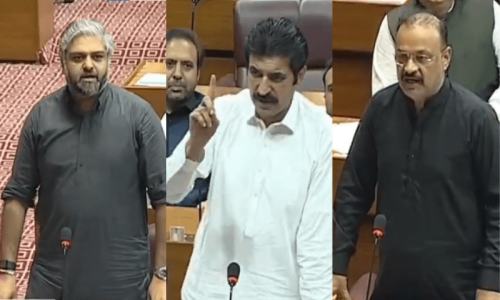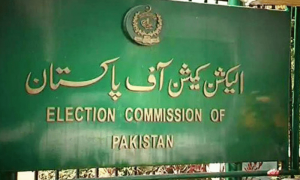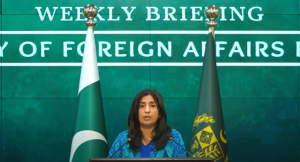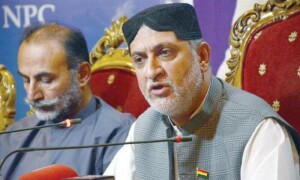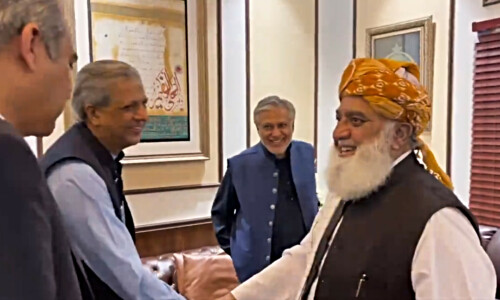BEIRUT: Russia’s military said on Friday it has begun scaling down its deployment to Syria, as the regime intensified its bombardment of a rebel-held district home to the capital’s main water source.
Moscow’s intervention in September 2015 helped turn the tide in favour of President Bashar al-Assad, whose forces scored a major victory last month with the recapture of opposition stronghold east Aleppo.
Russia’s military said a naval group headed by aircraft carrier Admiral Kuznetsov would leave the conflict zone under a drawdown ordered by President Vladimir Putin on Dec 29.
Aircraft from the carrier hit 1,252 “terrorist” targets during a two month mission, said Russia’s main commander in Syria, Andrei Kartapolov, quoted by Russian news agencies.
The Kuznetsov arrived off Syria in November as Russia boosted its firepower on land and in the Mediterranean to support regime forces targeting Aleppo.
The fall of the rebel-held east of the city was the regime’s biggest victory in more than five years of fighting.
Moscow had already announced a partial withdrawal of Russian forces in March 2016, but ramped up its presence again as fighting increased.
Putin’s latest announced drawdown coincided with the declaration of a ceasefire between government and rebel forces that has led to sharp drop in fighting.
A major exception has been the rebel-held area of Wadi Barada near Damascus where the regime has stepped up air strikes as the rival sides trade blame over a cut to mains supplies to the capital.
Government aircraft on Friday dropped at least 10 barrel bombs, crude munitions notorious for the indiscriminate casualties they cause, on Wadi Barada, the Syrian Observatory for Human Rights said.
The United Nations said Thursday that 5.5 million people had been affected, warning that sabotaging water supplies was a war crime.
The World Health Organization said on Friday that even after fighting finished it could take days to restore the supply.
Spokesman Tarik Jasarevic said the WHO was hearing that “once the teams from the public water utility would be able to access the water source it would take at least four days to repair and probably longer.”
The crisis has sent water prices in the capital skyrocketing, with bottled water selling for as much as double its normal price.
The UN children’s fund UNICEF voiced concern on Friday at the sale of water by “private vendors where prices and water quality are unregulated”, but said no cases of waterborne disease had yet been registered.
East of the capital, three people were killed in clashes in the Marj district, including a child, according to the Observatory, which has a network of sources on the ground.
Published in Dawn, January 7th, 2017

















